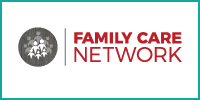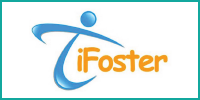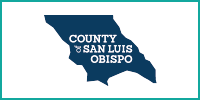What does Extended Foster Care (EFC) mean?
Under AB-12, youths who turn 18 on or after January 1, 2012 have the choice to stay in foster care to age 21. Youths who are 18 in 2011 and still attending school and/or are in foster acre may remain to their 19th birthday. This means you can:
- Continue to be supported by Child Welfare or Probation and have monthly caseworker visits
- Pursue education or employment goals
- Receive ongoing Independent Living Program (ILP) services
- Have choices about where you will live
- Be considered a ‘non-minor dependent’
- Leave dependency at any time but have the option to return (up to 21)
What do I need to do to be eligible?
- Tell your worker you want to stay in foster care; sign a mutual agreement form
- Meet one or more of five educational/employment options
- Live in a setting licensed or approved by Child Welfare
- Develop your case plan and TILP with your worker
- Meet monthly with your worker
- Continue as a non-minor dependent (NMD) of the Juvenile Court
What is the process to enter Extended Foster Care?
Before the status review hearing held six months before you turn 18, your case worker will talk to you about the extended foster care program, its benefits, and your right to re-enter (opt-in) if you decide to emancipate.
If you decide to stay in the program you will sign a voluntary “Mutual Agreement for Extended Foster Care” within six months of turning 18, to provide a smooth transition to EFC.
What if I choose to emancipate?
After you turn 18 you may choose to have your court case closed at any time; this is called “Trial Independence”. You will still be eligible for Medi-Cal insurance and ILP services to age 21. You might also be eligible for CalFresh (food stamps) and for the non-federally funded THP+ to age 24 if there are openings.
What if I emancipate but later want to return to Extended Foster Care?
If you are within the age limit, you may call Child Welfare Services to meet with a social worker (805.346.7127). You must agree to meet certain conditions to participate and be placed in approved or supervised care. NOTE: you may ‘opt in’ and ‘opt out’ as many times as you need. We don’t want you to give up your goals and dreams!
Are single parents eligible?
Yes, you have the same rights as other youths in the program. You may be able to receive supplemental income for your baby.
What does “Non-Minor Dependent” mean?
- You choose to stay in foster care under an agreement with Child Welfare or Probation
- You participate in a Transitional Independent Living Plan (TILP)
- You have the same rights as any other adult, including privacy rights about medical information
What are the 5 participating options?
You must choose at least one of these options to be eligible to participate:
- Pursue your high school diploma or equivalent program (GED)
- Enroll and attend college or a vocational education program
- Participate in job training or in a program to remove barriers to employment
- Be employed at least 80 hours a month
- A medical condition leaves you unable to do those listed above
Where can I live?
- Continue in your current placement
- Remain in current group home to finish high school, to age 19 only
- Choose another licensed or approved caregiver (relative or extended family home, FFA home)
- THP+ Foster Care (limited space—no guarantee of quick placement)
- Choose an approved Supervised Independent Living Placement (SILP) such as a dorm, room & board, or shared apartment
What happens if I break the agreement?
Your caseworker wants you to be supported and will work with you to meet program requirements. To continue to receive funding, however, you must tell your caseworker right away if you move, otherwise payments will stop. As always, staying in touch is the key to succeeding!
Are There Other Benefits for NMDs?
- Clothing Allowance
- ILP Services
- Exempted Savings to $10,000
- Per TILP, earned income disregarded
- Possible funding paid directly to you
Do my parent(s) need to be involved?
They do no. They are not noticed for court or receive any services.




